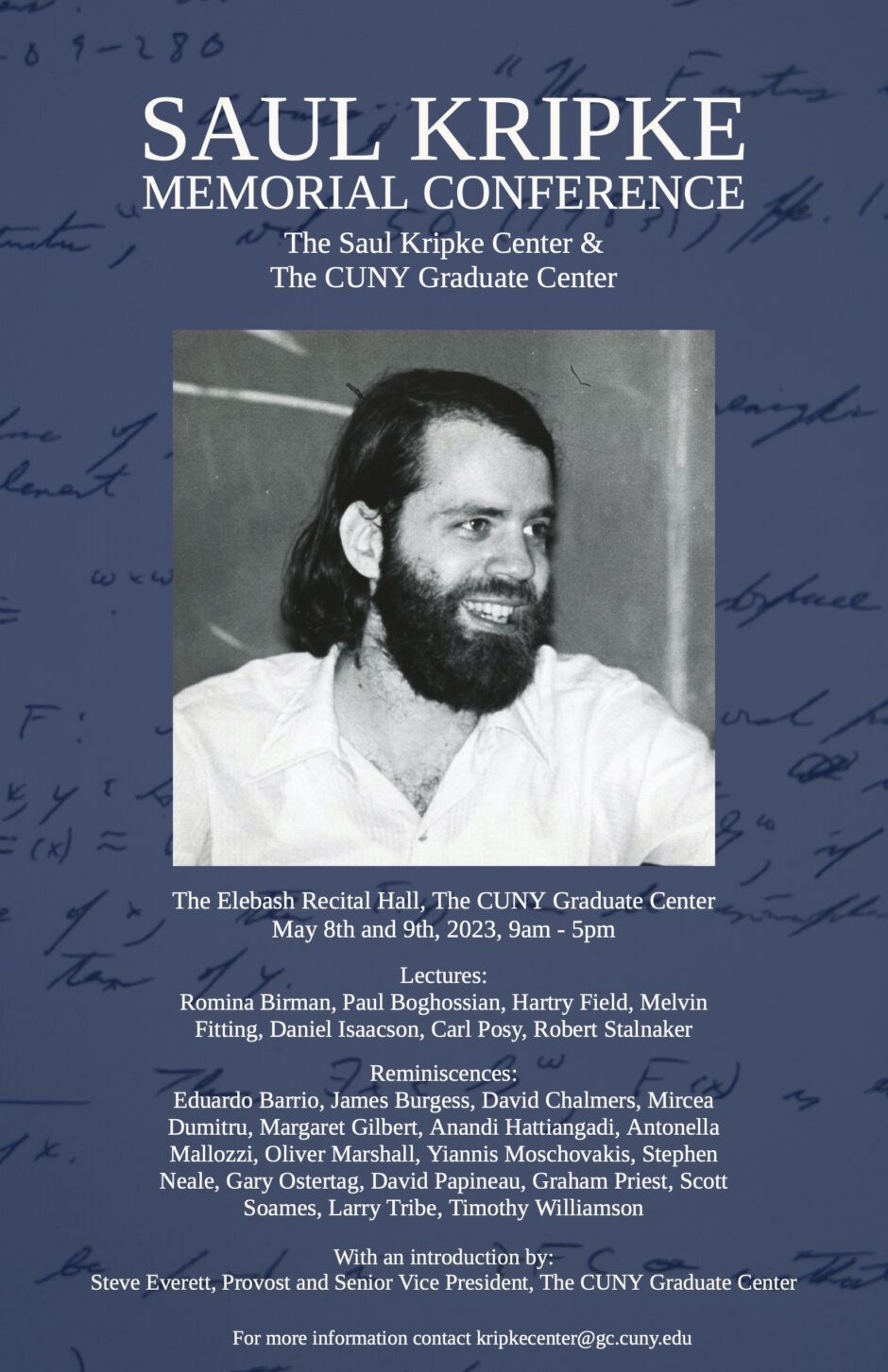The Saul Kripke Center is pleased to announce that Nils Kürbis (Bochum) and Heinrich Wansing (Bochum) will deliver talks on Wednesday, June 11th, 2025, at the CUNY Graduate Center (Room 9207). The talks are free and open to all.
Title (1): A Theory of Definite Descriptions for Modal Logic
Time (1): 2:00 to 3:00 pm
Speaker (1): Nils Kürbis (Bochum)
Abstract (1): I’ll present a theory of definite descriptions in positive free logic, where definite descriptions ‘the F’ are formalised as in the context of complete sentences ‘The F is G’ by a binary quantifier as Ix(F, G). Formalised in natural deduction or sequent calculus, the theory satisfies certain proof-theoretic requirements demanded by proof theoretic semantics. Thus the meaning of I can be taken to be defined by its rules of inference. Positive free logic has been fruitfully applied in quantified modal logic. So I’ll consider what happens when modal operators are added. It turns out that the semantic clauses for Ix(F, G) are exactly those of Fitting and Mendelsohn (First Order Modal Logic, 2nd edition, Springer 2023), except that they formalise ‘The F is G’ by the iota operator for ‘the’ and the lambda for predicate abstraction to mark scope. I’ll end the talk with a brief comparison between the two systems.
***
Title (2): Solving a New Paradox of Deontic Logic (and a dozen other paradoxes) with RNmatrices for MC-based Modal Logics
Time (2): 3:00 to 4:00 pm
Speaker (2): Heinrich Wansing (Bochum) [joint work with Daniel Skurt (Bochum)]
Abstract (2): In this paper, we present RNmatrices (restricted non-deterministc matrices) for normal and non-normal modal expansions of the material connexive logic MC. We introduce and solve a paradox of deontic logic that to the best of our knowledge has not yet been been discussed in the literature and that justifies the use of a connexive, and actually hyperconnexive, non-modal base logic.






